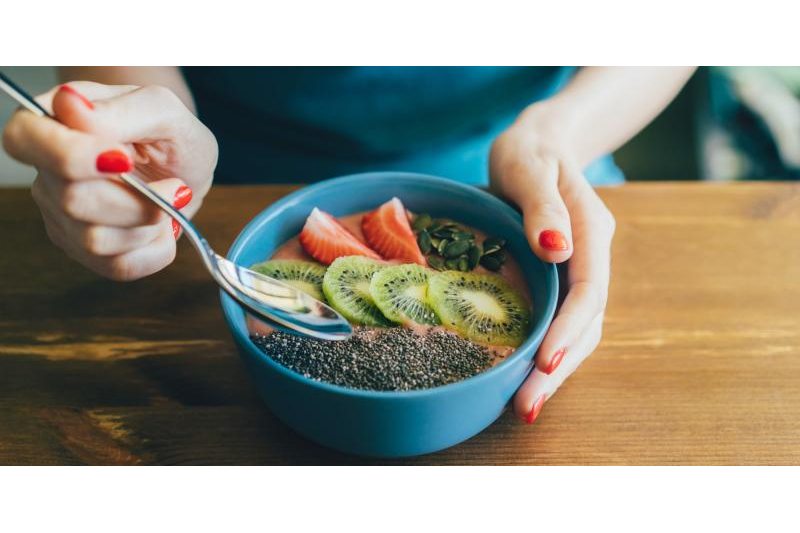Diabetology
Creating a Diabetic Meal Plan: Essential Tips and Strategies
Published
1 year agoon
By
Robert
A diabetes diagnosis can feel overwhelming, but you’re not alone. Millions of people worldwide manage diabetes effectively, and a crucial element of successful management is a well-crafted diabetic meal plan. This comprehensive guide empowers you with the knowledge and strategies to create a personalized plan that promotes healthy eating habits, maintains good blood sugar control, and fuels your body for an active life.
Understanding the Basics of Diabetic Meal Planning
Before diving into specifics, let’s establish a foundation:
- Balanced Nutrition: A diabetic meal plan incorporates all food groups – fruits, vegetables, whole grains, lean protein, and healthy fats – in appropriate proportions. This ensures your body receives the essential nutrients it needs to function optimally.
- Carbohydrate Counting: Carbohydrates (carbs) significantly impact blood sugar levels. Understanding how much and what type of carbs you consume is crucial for managing blood sugar.
- Portion Control: Managing portion sizes is essential to prevent blood sugar spikes. Learning proper portion sizes helps ensure you’re consuming the right amount of calories and nutrients without overindulging.
- Blood Sugar Monitoring: Regularly monitoring your blood sugar levels allows you to assess the effectiveness of your meal plan and make adjustments as needed.
Essential Tips for Building Your Diabetic Meal Plan
Now that you have the basics, let’s explore practical tips for crafting a diabetic meal plan that works for you:
- Consider Your Individual Needs:
- Age, weight, and activity level: These factors determine your calorie needs.
- Type of diabetes: Management strategies differ slightly for type 1 and type 2 diabetes.
- Current medications: Certain medications might interact with specific foods, so consult your doctor.
- Food preferences and cultural background: Your meal plan should be enjoyable and sustainable.
- Consult a Registered Dietitian: A registered dietitian (RD) can tailor a personalized plan based on your individual needs and preferences.
- Embrace Variety: Including a wide range of healthy foods keeps your meals interesting and ensures you receive a complete spectrum of nutrients.
- Focus on Whole Foods: Prioritize unprocessed or minimally processed whole foods like fruits, vegetables, whole grains, and lean proteins.
- Limit Added Sugars and Refined Carbs: These can significantly impact blood sugar levels. Opt for natural sugars from fruits and complex carbohydrates from whole grains instead.
- Incorporate Healthy Fats: Healthy fats, like those from nuts, seeds, avocados, and olive oil, promote satiety and add flavor to your meals.
- Plan Your Meals: Taking time to plan meals in advance helps you make healthy choices and avoid unhealthy temptations. Consider weekly meal planning and prepping ingredients to save time.
- Read Food Labels: Pay close attention to serving sizes, carbohydrate content, and added sugars when choosing packaged foods.
- Don’t Skip Meals: Regular meals help maintain stable blood sugar levels. Aim for three balanced meals and healthy snacks throughout the day.
- Stay Hydrated: Drinking plenty of water helps your body function optimally and can also contribute to a feeling of fullness.
Sample Diabetic Meal Plan with Carb Counting
Here’s a sample diabetic meal plan for one day to illustrate the principles discussed:
Breakfast (Total Carbs: 30 grams)
- 1 cup (15g carbs) unsweetened Greek yogurt with ½ cup (7.5g carbs) berries and a sprinkle of ¼ cup (7.5g carbs) chopped almonds
Lunch (Total Carbs: 45 grams)
- Grilled chicken breast (0g carbs) with 1 cup (15g carbs) brown rice, 1 cup (15g carbs) steamed broccoli, and 1 tablespoon (5g carbs) olive oil dressing
Dinner (Total Carbs: 40 grams)
- Baked salmon (0g carbs) with 1 cup (15g carbs) roasted sweet potato, 1 cup (15g carbs) mixed green salad with 2 tablespoons (10g carbs) vinaigrette dressing
Snacks (Total Carbs: 30 grams spread throughout the day)
- Apple slices (15g carbs) with 1 tablespoon (15g carbs) almond butter
- Handful of mixed nuts (15g carbs)
Remember, this is just a sample, and your specific needs may differ.
Beyond the Basics: Additional Strategies for Success
Here are some additional tips to enhance your diabetic meal planning journey:
- Be Flexible: Life throws curveballs. Don’t get discouraged if you miss a meal or have an unplanned indulgence. Get back on track with your next meal.
- Celebrate Your Achievements: Acknowledge your progress, no matter how small. This will help you stay motivated on your journey.
- Join a Support Group: Connecting with others who understand the challenges of diabetes can be a source of motivation and inspiration.
- Explore Diabetic-Friendly Recipes: Numerous resources offer delicious and healthy recipes specifically designed for diabetic meal plans.
- Consider Cooking Classes: Learning how to cook healthy and flavorful meals can empower you to create a sustainable and enjoyable diabetic meal plan.
- Manage Stress: Chronic stress can raise blood sugar levels. Practice relaxation techniques like yoga, meditation, or deep breathing to manage stress effectively.
- Get Enough Sleep: Adequate sleep is crucial for overall health and blood sugar control. Aim for 7-8 hours of quality sleep each night.
Living a Fulfilling Life with Diabetes
Creating and maintaining a diabetic meal plan is an ongoing process. However, by embracing these tips and strategies, you can develop a personalized plan that allows you to enjoy delicious and healthy meals while managing your blood sugar effectively. With dedication and a positive mindset, you can achieve a healthy and fulfilling life with diabetes.
Disclaimer: This information is intended for general knowledge and should not be a substitute for professional medical advice. Always consult with your doctor or a registered dietitian to create a personalized diabetic meal plan tailored to your specific needs and preferences.
The Latest News
- Best Lifestyle Changes to Lower Stress and Balance Blood Sugar Naturally
- Best Morning Routine for Diabetics: A Complete Guide
- Diabetes Management: Effective Strategies to Control Blood Sugar Naturally
- Best Morning Routines for People with Diabetes
- Essential Lifestyle Tips for Preventing Diabetes Complications
- Diabetes Awareness in Children: Early Habits That Matter
- Importance of Regular Blood Sugar Monitoring

Best Lifestyle Changes to Lower Stress and Balance Blood Sugar Naturally

Best Morning Routine for Diabetics: A Complete Guide

Diabetes Management: Effective Strategies to Control Blood Sugar Naturally

Lung growth invading Treg have different transcriptional profiles and capability connected to designated spot bar reaction

Psoriasis be treatment by adjuvant Salicylic acid, ceramides as this containing lotions







